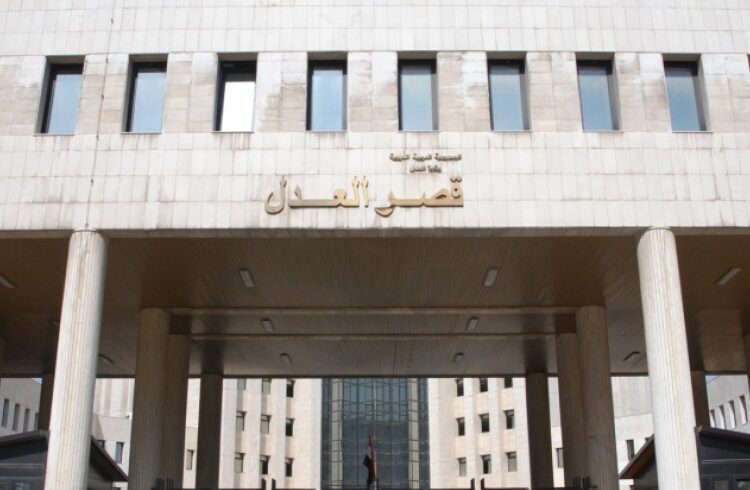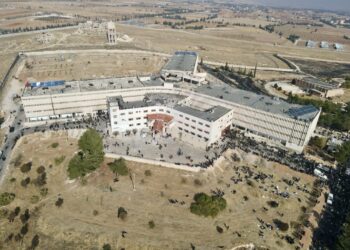Fadel Abdulghany
The question of the role of law in Syria’s political transformation after the fall of the Assad regime calls for study from the perspective of transitional jurisprudence, a particular model that emerges during periods of radical political change. As Professor Ruti Teitel demonstrates in her pioneering work on law and political transformation, law in transitional contexts operates according to a different logic that transcends the traditional classifications prevalent in normal times. It operates within the parameters of a “paradoxical duality”: preserving the regime and enabling transformation simultaneously; establishing continuity and facilitating rupture; addressing past grievances and building normative frameworks that anticipate the future. This inherent tension produces a transitional legal model that Syria must adopt in its post-Assad path.
The Syrian context represents a particularly complex case for this jurisprudence. The legal response must address decades of systematic persecution that has assumed legal cover. Therefore, the transitional legal framework must undertake the delicate task of addressing these violations with legal tools while simultaneously establishing new foundations for legitimate governance. This transformational process is not limited to simply replacing one legal system with another. Rather, it includes a radical restructuring of the relationship between law, political power, and social justice. Accordingly, emerging transitional legal responses will be constitutive of Syria’s political transformation, not merely a reflection of it, as they represent the mechanism through which society perceives and embodies emancipatory change.
Theoretical Foundations of Transitional Jurisprudence
The theoretical framework of transitional jurisprudence is based on redefining the essence and function of law during periods of political transition. In contrast to the realist and idealist approaches that dominate traditional legal theory, this jurisprudence operates according to a constructivist model that recognizes the specificity of legal phenomena in exceptional political circumstances. This perspective reveals how legal forms in times of transition not only perform a regulatory function, but also a transformative one, mediating between competing normative systems and facilitating the transition from one political system to another. The tension between realism and idealism reveals the limitations of traditional approaches to understanding transitional phenomena. The realist perspective, with its focus on power dynamics and political constraints, reduces legal responses to mere reflections of existing balances. While acknowledging the political nature of the situation, it fails to explain the multifaceted nature of transitional legal phenomena or to clarify the connection between particular legal options and the prospects of liberal transformation. Conversely, the idealist perspective, with its universal assumptions about justice, ignores the distinctive characteristics of justice in exceptional situations. Neither framework accurately captures how the law operates when called upon to reconcile a view of the past with a claim to the future.
The rule of law dilemma embodies this theoretical problem. In established democracies, and in normal times, the rule of law implies adherence to established legal precedents and pre-established rules that constrain executive power. However, revolutions typically lead to legal turmoil and chaos, raising a difficult question: How can a transitional phase remain compatible with the requirements of the rule of law while the foundations of the legal system itself are being radically reshaped? This tension is not limited to the temporal dimension; it penetrates the very core of the legitimacy of the liberal state.
Transitional jurisprudence offers a solution through a conception of law that is partial and contextual, situated “between” legal systems. The transitional rule of law is not presented as an abstract ideal, but rather as a normative value system that responds to past political oppression. This conception reveals the contingent nature of law in times of transition. Rather than being based on fixed principles, transitional law mediates shifts in the meanings and standards of justice. The rule of law thus becomes simultaneously stable and unstable: it abandons the illiberal standards of the past and demands the liberal standards of the future.
This framework illustrates how transitional legal forms contribute to the construction of new concepts of legitimacy through their relationship with prior legacies. Emerging justice is contextual in nature: what is considered just is largely determined by and influenced by prior injustice. Thus, responding to oppressive rule redefines commitment to the rule of law, while the legacy of abuses informs understandings of what is considered transformative. This contextual understanding challenges liberal theories that assume the independence of law from politics and contests critical theories that integrate law entirely into political forces.
Criminal and Constitutional Justice as Transformative Mechanisms
The application of criminal justice mechanisms in Syria’s transitional phase embodies the transformative potential of law to simultaneously address past injustices and build new normative foundations. These mechanisms—including judicial practices, criminal sanctions, and constitutional processes—share distinct features from their counterparts in normal situations, while simultaneously generating political transformation.
Transitional judiciaries bear the burden of consolidating new concepts of the rule of law. Constitutional courts in post-authoritarian periods assume this transformative role, oscillating between legal continuity and discontinuity. They establish a conception of the rule of law as a system that counters the encroachment of politics, affirming principled normative visions independent of transitional forces. This judicial independence serves a crucial signaling function, revealing a break from previous regimes in which law was an instrument of political will. The emerging field of transformative jurisprudence offers a restrained form of judicial “politicization”: rulings that acknowledge the political dimensions of law while preserving societal demands through principled decision-making.
The question of the role of law in Syria’s political transformation after the fall of the Assad regime calls for study from the perspective of transitional jurisprudence, a particular model that emerges during periods of radical political change. As Professor Ruti Teitel demonstrates in her pioneering work on law and political transformation, law in transitional contexts operates according to a different logic that transcends the traditional categorizations prevalent in normal times. It operates within parameters that are essentially a “paradoxical duality”: simultaneously preserving order and enabling transformation; establishing continuity and facilitating rupture; addressing past grievances and building normative frameworks that anticipate the future. This inherent tension produces a transitional legal model that Syria must adopt in its post-Assad path.
Criminal justice in transitional phases goes beyond the usual purpose of punishment to serve a broader systemic transformation. The exemplary development of the jurisprudence of crimes against humanity demonstrates that criminal sanctions in these phases address not only individual wrongdoing but also systematic state oppression. These prosecutions establish normative boundaries between legitimate and illegitimate rule, expressing a societal commitment to equality before the law as a foundational value of democratic systems. Transitional criminal punishment operates according to a distinctive logic: by condemning the evils of the previous state, committed under the guise of law, trials create a retreat that heralds a new legitimacy and build a collective understanding of political change that defines the boundaries of acceptable state behavior.
The Syrian transitional constitution should embody a specific temporality, as defined by the theoretical framework: it should retrospectively condemn and restrict the legacy of the Assad regime, while simultaneously maintaining a perspective that allows for democratic deliberation regarding the future political structure. This temporal duality is manifested in constitutional provisions that may include clauses defining the duration of transitional institutions, gradual measures to expand political participation, and mechanisms for the gradual transfer of power from transitional structures to permanent democratic institutions. Thus, the constitution is not a foundational document in the traditional sense, but rather a bridge between political systems, ensuring transformation and preserving a degree of legal continuity that prevents institutional collapse.
The diversity of transitional legal forms reveals their essential function in reconstructing norms. As different legal mechanisms converge toward common transformative goals, traditional categorical boundaries dissolve: constitutions assume quasi-judicial functions, criminal sanctions establish rights and duties typically attributed to civil law, and trials are harnessed for interpretive purposes that go beyond the scope of punishment. This categorical disintegration reflects the adaptation of law to the exceptional exigencies of political transformation, as traditional legal forms prove incapable of confronting the complexities of systemic change.
Through mechanisms of investigation and condemnation, the law exposes and delegitimizes the value system associated with the previous regime, paving the way for a normative shift. Legal proceedings contribute to expanding public awareness of past wrongdoing, while judicial opinions, trials, and constitutional procedures provide formal public justifications for political change. In this way, these mechanisms support the cognitive and interpretive transformations necessary to understand transformation and reconstruct the interests of the state and society through familiar legal forms that enable societies to move beyond periods of repression toward broader spaces of freedom.
Conclusion: Law as a Constructive Factor in the Syrian Political Transformation
The role of law in the political transformation in post-Assad Syria emerges as essentially constructive, not merely a regulatory function or a circumstantial response. Law is not limited to framing or accompanying political change; rather, it actively constructs the conceptual and normative frameworks through which the transformation is understood and legitimized. Transitional jurisprudence—which should guide the course of Syria’s transformation—emerges with specific formulations that transcend traditional legal classifications, creating hybrid forms that mediate between past and future, continuity and rupture, national and international, and political and legal.
The constructivist nature of transitional jurisprudence reveals that legal responses in times of political turmoil not only reflect transformational processes, but also contribute to shaping them. Law does not operate entirely independently of politics, nor is it relegated to the status of a secondary phenomenon. Rather, it occupies a distinct transformative space in which legal forms, through their tools and norms, contribute to constructing and consolidating political change. This realization poses a challenge to liberal theories that assume the transcendence of law over politics, and to critical approaches that dissolve it within power structures. It offers a more nuanced understanding of the potential of law to enable societal transformation.
The distinctive features of transitional legal phenomena—their contextuality, their dual temporality, both backward and forward-looking, and their ability to reshape categorical boundaries—reflect their ability to adapt to the complexities of systemic change. These mechanisms do not arbitrarily deviate from the principles of the rule of law, but rather reconstruct them in response to legacies of injustice. By exposing violations, delegitimizing systems of oppression, and reestablishing norms, transitional law enables societies to perceive and achieve emancipatory change.
Ultimately, transitional jurisprudence provides an analytical description of how law operates in contexts of political transformation and a normative framework for evaluating legal responses to such transformation. Understanding this distinct field of jurisprudence also provides useful critical insights for societies undergoing transition, such as Syria, and for broader reflection on the relationship of law to political and social change. The enduring importance of transitional jurisprudence lies in highlighting the transformative potential of law—its ability not only to preserve the existing order but also to construct political transformation, as a means of transitioning from oppression to freedom by building new normative foundations.






